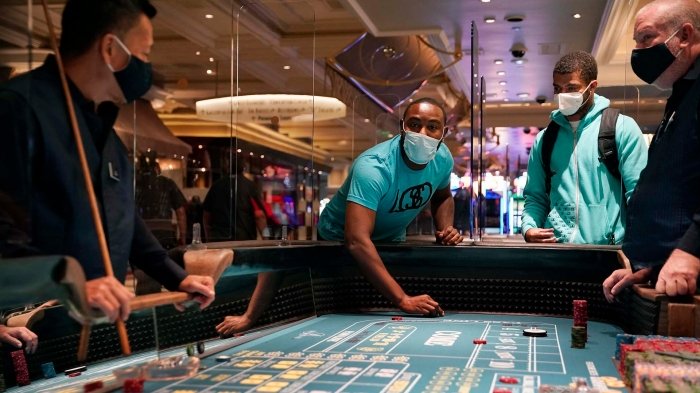T
he Innovation Group (TIG) released last week its latest report, “Coronavirus Recovery Consumer Research Casino Gaming,” providing a casino player behavior benchmark analysis. The company will discuss the findings on Monday in a Q&A webinar.
TIG has been following COVID-19 and its impact on the gaming industry since the pandemic emerged. As part of its ongoing effort to forecast recovery patterns, it has conducted periodic consumer research to understand changing player perceptions and behaviors around casino floors, amenities, and new technologies such as cashless payments. In May, prior to casino reopenings, TIG conducted survey research to capture the voice of the guest, and it compared the May results to August to gauge player perceptions since reopening.
Among the key findings, the research shows that players overstated their intention to return, but higher quality players are showing up. Only 17% of casino-goers have actually returned to casinos since reopening, versus 40% who said they would return in May. Also, vaccine development is very important to players opting out, as 35% of casino-goers stated that they will not return until a vaccine or reliable treatment is available.
The report also shows that players expect to moderate their gaming budgets, and interest in amenity use is much lower than pre-COVID levels. Only 54% of those who have returned to a casino used a nongaming amenity (hotel, pool, spa, restaurant, etc.) on their recent visit, versus 88% who report using one on a typical trip in 2019.
Moreover, safety measures have generally been in line with guest expectations, according to TIG’s data. 89% of those who have returned to casinos believed that the casino implemented “an appropriate level of safety measures” or “too many safety measures,” while only 11% felt that the casino did not do enough.
TIG also found regional variation in player behavior tracks prior research. Trip declines blended to 46%, 47%, and 48% in the Midwest, Northeast, and West, respectively, while trip declines in the South were only 31%. Likewise, guests in the South had more relaxed attitudes toward protective measures.
Players want cashless options, the report shows, with 86% of respondents expressing concern regarding acquiring coronavirus from handling cash at the casino. 72% of all respondents indicated that they were “somewhat likely” or “very likely” to use cashless payments if available, and 66% said they’d be “somewhat likely” or “very likely” to visit a casino that offered cashless gaming. High frequency and high worth guests were more likely to desire cashless options.
Michael Soll, Brian Wyman, and Chloe Paul from TIG will host an open discussion on Monday at 1 p.m. ET to find out what players from across the U.S. are saying about how the coronavirus is affecting gaming participation, budgets, amenity utilization, and perceptions of their safety during casino visitation. Regional and demographic insights will be shared.
The Innovation Group conducted two online surveys, each targeting 600 casino-goers across the United States. The first survey was conducted in May 2020 before casinos reopened to measure guest sentiment towards re-opening. The second survey was conducted in August 2020 after most casinos re-opened to measure if re-openings met expectations. Respondents represented a multitude of gaming budgets and frequencies, age ranges, geographies, and political affiliations. Each respondent had indicated gambling as an interest, and all reported having been to a casino in the last 12 months.
See “Coronavirus Recovery Consumer Research Casino Gaming” full report here.



